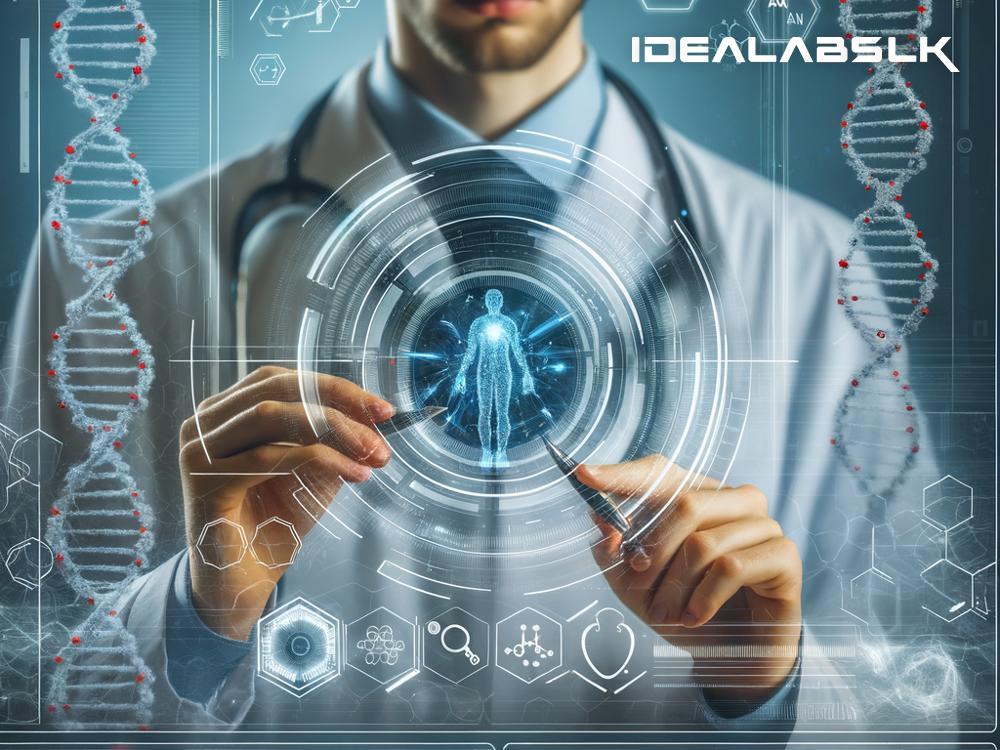The Role of Artificial Intelligence in Diagnosing Rare Diseases: A Game-Changer in Healthcare
Imagine if your body was a bit like a puzzle, with each piece being a clue about your health. Now, think about what happens when a piece doesn't fit like it normally should. It might not seem like a big deal at first, but what if that piece was crucial in understanding a bigger picture, especially when it's about rare diseases? That's where the magic of Artificial Intelligence (AI) steps in, particularly in the world of healthcare, transforming it into something closer to a superhero saga.
Rare diseases are like those puzzles that are missing a piece, making them hard to solve. They are often complex, with symptoms that can mimic other, more common ailments. This makes diagnosing them a real challenge, not to mention the ticking clock that healthcare professionals are racing against to start the right treatment. Until recently, this has been a steep mountain to climb, but AI is changing the game in unprecedented ways.
AI: The Super Detective
AI, in the world of healthcare, is like having the world’s best detective on your team. It doesn’t need sleep, it remembers every single piece of information it ever comes across, and it learns from each case it encounters. AI systems can sift through millions of pieces of data - research papers, patient records, and databases about genetic information - in the blink of an eye. What's exciting is that AI is not just looking; it's understanding and finding patterns that even the most experienced human eyes might miss.
Faster Than a Speeding Bullet
One of the standout strengths of AI in diagnosing rare diseases is its speed. Traditional diagnostic processes can be lengthy, often involving a trial-and-error approach to understand a patient’s symptoms. AI, however, can quickly compare a patient’s information with a vast array of data to suggest possible diagnoses. This is crucial because, with many rare diseases, time is of the essence. The faster a disease is identified, the quicker a patient can begin treatment, potentially saving lives.
The Power of Precision
Accuracy is another superhero trait of AI. When it comes to rare diseases, being precise is non-negotiable. A misdiagnosis can send a patient on a wild goose chase, undergoing unnecessary treatments and experiencing avoidable side effects. AI's ability to analyze and cross-reference data with pinpoint accuracy significantly reduces the chances of error, ensuring that patients receive the correct diagnosis and, consequently, the right treatment.
Learning From Each Case
Unlike traditional methods, AI systems don’t just offer a diagnosis; they learn from every piece of data they process. This means that with every patient case, AI becomes smarter and more efficient, constantly improving its diagnostic capabilities. This is particularly valuable in the field of rare diseases, where new information can change the understanding of a disease or lead to the discovery of new ones.
Empowering Doctors
It's important to note that AI is not replacing doctors but empowering them. By providing healthcare professionals with in-depth analysis and potential diagnoses, AI acts as a powerful tool in their arsenal, freeing up their time to focus more on patient care rather than sifting through data. This collaboration between human and artificial intelligence is proving to be a cornerstone in advancing healthcare.
Breaking New Grounds
The impact of AI on diagnosing rare diseases is only beginning to be felt. As technology advances, so too will AI’s capabilities, opening up new possibilities for understanding and treating these elusive conditions. We are already seeing AI-powered systems that can predict disease progression and suggest potential treatments, heralding a new era of personalized medicine that could transform patients' lives around the world.
In Conclusion
The role of Artificial Intelligence in diagnosing rare diseases is a beacon of hope, shining light on conditions once overshadowed by uncertainty and complexity. By harnessing the power of AI, healthcare professionals are not only changing the game but are also setting a new standard in the care and understanding of rare diseases. As AI continues to evolve, its potential to revolutionize healthcare is limitless, making it a true game-changer in diagnosing and treating the rarest of diseases. In this superhero saga of technology and healthcare, AI is proving to be the hero we didn’t know we needed.

